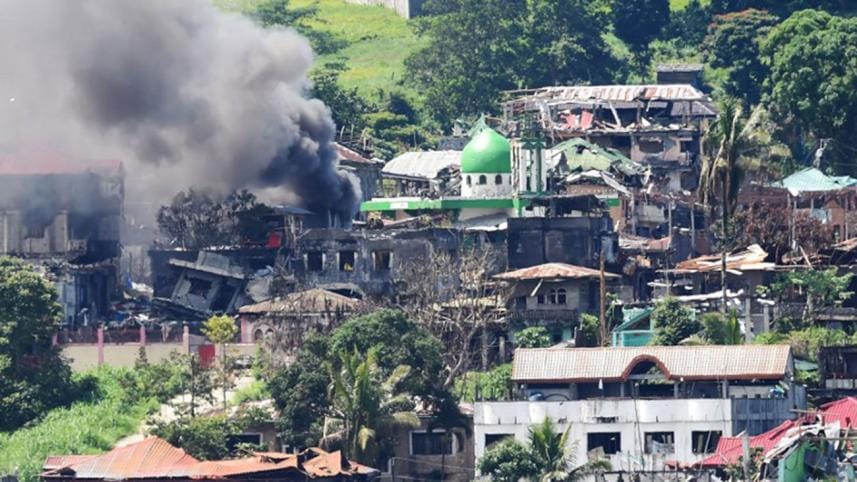Philippines seeks peace with Muslim self-rule vote

A decades-long push to halt the violence that has claimed some 150,000 lives in the southern Philippines culminates Monday with a vote on giving the nation's Muslim minority greater control over the region.
The poll is the final step in a peace deal with the Catholic-majority country's largest Muslim rebel group, the Moro Islamic Liberation Front (MILF), which has been a key force in a separatist insurgency that has raged since the 1970s.
Core areas of the proposed Bangasmoro region, located on the southern island of Mindanao, are expected to vote overwhelmingly to join it.
"I'm tired of the violence because my father is one of the victims," said 22-year-old Jembrah Abas, adding he was slain by unidentified attackers after advocating for peace.
The election "is on the 20th anniversary of his death. I'm so sick of the violence", she told AFP.
Roughly 2.8 million voters will be watched over by a contingent of 20,000 police and soldiers, amid fears rival insurgent groups could use violence to try to disrupt the poll.
The peace process began in the 1990s and does not include hardline Islamist factions, including those aligned with the Islamic State group, which are also active in the southern Philippines.
"Their motive is to sow terror," Philippine national police chief Oscar Albayalde said, referring to the rival groups. "They don't really have any other cause."
The government and MILF hope that a new, stable Bangasmoro will attract investment to a region where brutal poverty and perennial bloodshed has fuelled recruitment by radical groups.
President Rodrigo Duterte, who also hails from Mindanao, has long backed the creation of an autonomous region for the island's Muslims.
Demobilisation
Under the terms of the law which lays out the region's powers, Bangasmoro will get $950 million in development funds over the next 10 years, as well as chunk of the tax revenue generated within its borders.
The national government will keep control over the police, though the leadership of the autonomous area will be closely involved in security matters.
Final results are expected to be released within four days of the voting, with an approval triggering the demobilisation of a third of MILF's fighters, which it says number 30,000.
Muslim rebels have long been battling for independence or autonomy on Mindanao, which they regard as their ancestral homeland dating back to when Arab traders arrived there in the 13th century.
In fact, the new entity would enlarge and replace a similar autonomous zone in the same part of the southern Philippines, which struggled to complete development projects and was plagued by violence.
The proposed region includes the city of Marawi, which was seized by jihadists flying the black flag of IS in 2017 and who were only dislodged by a five-month battle that flattened swathes of the town.
Experts say the devolution of powers to the region is one of the best opportunities in recent memory to bring down the persistently high levels of lawlessness in the Philippines' south.
However, corruption and mismanagement are perennial problems across the nation of 105 million, and doubts remain over whether resources promised for development would find their way to Bangasmoro.
Experts also said not all groups would support the change.
"In the short term, there are a number of groups and politicians that are going to lose out," Gregory Wyatt, director for business intelligence at PSA Philippines Consultancy, told AFP.
"So there are significant short term risks."



 For all latest news, follow The Daily Star's Google News channel.
For all latest news, follow The Daily Star's Google News channel.
Comments